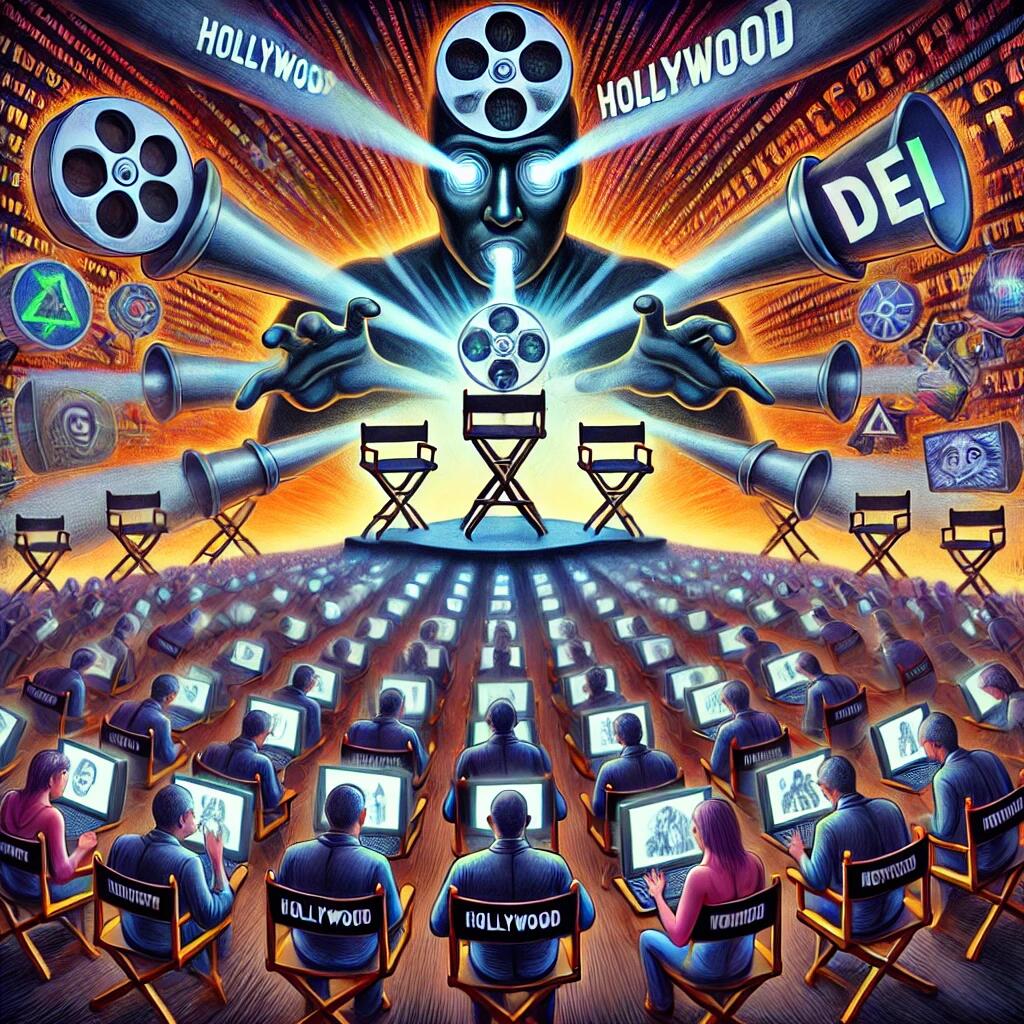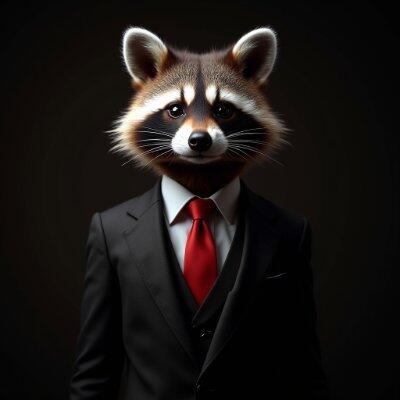SamuelGabrielSG on Nostr: Hollywood's DEI Push: A Modern Form of Psychic Driving In recent years, Hollywood has ...
Hollywood's DEI Push: A Modern Form of Psychic Driving
In recent years, Hollywood has become a battleground for debates over diversity, equity, and inclusion (DEI). From race-swapping iconic characters to gender-swapping established roles, the entertainment industry seems to have embraced a new agenda, one that many argue goes beyond simple representation. Some critics view this DEI push as a form of punishment, a way for Hollywood to atone for perceived past injustices by force-feeding audiences a new narrative. But there is another, perhaps more insidious aspect to this phenomenon: it can also be likened to a form of psychic driving, reminiscent of the CIA's mind control experiments.
The Concept of Psychic Driving
Psychic driving was a technique developed during the CIA's controversial MK-Ultra program, which aimed to explore mind control and behavioral manipulation. The method involved repeatedly playing messages to a subject in an attempt to break down their resistance and implant new ideas or beliefs. By bombarding the mind with the same stimuli over and over again, the subject would eventually be worn down, their original thoughts eroded, and replaced with the new input.
Hollywood's current obsession with DEI can be viewed through a similar lens. With every new movie or series that embraces race-swapping, gender-swapping, or other forms of diversity, audiences are exposed to a relentless stream of messages about what they should accept, believe, and value. These changes are not always organic or driven by the demands of the story; rather, they often seem imposed from the outside, with the clear intent of reshaping public perceptions and norms.
DEI as a Form of Punishment
One of the most striking aspects of Hollywood's DEI push is how it feels punitive. Instead of creating new, original characters that reflect the diversity they claim to champion, Hollywood often opts to alter existing characters, many of whom hold significant cultural or nostalgic value. This approach can be seen as a form of punishment for audiences who are perceived to have held or perpetuated "incorrect" views about race, gender, or identity.
By taking beloved characters and altering them, Hollywood is sending a message: the old ways of thinking are no longer acceptable. You must embrace the new, whether you like it or not. This imposition of new values on an often unwilling audience mirrors the coercive nature of psychic driving, where the goal is not to inspire genuine change but to force it through repetition and saturation.
The Impact of Hollywood's Psychic Driving
The parallels between Hollywood's DEI push and the CIA's psychic driving are unsettling. Both involve the use of repeated stimuli to wear down resistance and implant new ideas. Both are driven by an agenda that seeks to control how people think and perceive the world. And both are met with significant resistance from those who recognize the coercive tactics at play.
Just as psychic driving was meant to break down a subject's mental defenses, Hollywood's relentless push for DEI in every facet of entertainment seeks to break down cultural and societal norms, replacing them with a new, ideologically driven narrative. This isn't to say that diversity in media is inherently wrong—far from it. But when it is used as a tool of coercion rather than as a means of genuinely reflecting society, it becomes problematic.
The result is a growing backlash, as audiences tire of being told what to think and how to feel. They see through the veneer of "progress" and recognize the underlying manipulation. This backlash isn't just about rejecting diversity; it's about rejecting the methods by which that diversity is being imposed. People want authenticity, not coercion.
The Future of Entertainment
As Hollywood continues down this path, it risks alienating its core audience and becoming increasingly irrelevant. The entertainment industry is at a crossroads: it can continue to push its DEI agenda through coercive means, or it can seek to genuinely reflect the diversity of human experience in a way that resonates with audiences.
In the end, true progress comes not from forcing change through psychic driving, but from fostering an environment where diverse stories can flourish organically. Hollywood's current approach, reminiscent of the CIA's most controversial experiments, is unlikely to achieve the lasting change it desires. Instead, it may only serve to deepen the divisions it seeks to heal.
The lesson is clear: diversity should be celebrated, not imposed. When audiences are treated as partners in the creative process, rather than subjects to be manipulated, the results are far more powerful, lasting, and, ultimately, meaningful.

In recent years, Hollywood has become a battleground for debates over diversity, equity, and inclusion (DEI). From race-swapping iconic characters to gender-swapping established roles, the entertainment industry seems to have embraced a new agenda, one that many argue goes beyond simple representation. Some critics view this DEI push as a form of punishment, a way for Hollywood to atone for perceived past injustices by force-feeding audiences a new narrative. But there is another, perhaps more insidious aspect to this phenomenon: it can also be likened to a form of psychic driving, reminiscent of the CIA's mind control experiments.
The Concept of Psychic Driving
Psychic driving was a technique developed during the CIA's controversial MK-Ultra program, which aimed to explore mind control and behavioral manipulation. The method involved repeatedly playing messages to a subject in an attempt to break down their resistance and implant new ideas or beliefs. By bombarding the mind with the same stimuli over and over again, the subject would eventually be worn down, their original thoughts eroded, and replaced with the new input.
Hollywood's current obsession with DEI can be viewed through a similar lens. With every new movie or series that embraces race-swapping, gender-swapping, or other forms of diversity, audiences are exposed to a relentless stream of messages about what they should accept, believe, and value. These changes are not always organic or driven by the demands of the story; rather, they often seem imposed from the outside, with the clear intent of reshaping public perceptions and norms.
DEI as a Form of Punishment
One of the most striking aspects of Hollywood's DEI push is how it feels punitive. Instead of creating new, original characters that reflect the diversity they claim to champion, Hollywood often opts to alter existing characters, many of whom hold significant cultural or nostalgic value. This approach can be seen as a form of punishment for audiences who are perceived to have held or perpetuated "incorrect" views about race, gender, or identity.
By taking beloved characters and altering them, Hollywood is sending a message: the old ways of thinking are no longer acceptable. You must embrace the new, whether you like it or not. This imposition of new values on an often unwilling audience mirrors the coercive nature of psychic driving, where the goal is not to inspire genuine change but to force it through repetition and saturation.
The Impact of Hollywood's Psychic Driving
The parallels between Hollywood's DEI push and the CIA's psychic driving are unsettling. Both involve the use of repeated stimuli to wear down resistance and implant new ideas. Both are driven by an agenda that seeks to control how people think and perceive the world. And both are met with significant resistance from those who recognize the coercive tactics at play.
Just as psychic driving was meant to break down a subject's mental defenses, Hollywood's relentless push for DEI in every facet of entertainment seeks to break down cultural and societal norms, replacing them with a new, ideologically driven narrative. This isn't to say that diversity in media is inherently wrong—far from it. But when it is used as a tool of coercion rather than as a means of genuinely reflecting society, it becomes problematic.
The result is a growing backlash, as audiences tire of being told what to think and how to feel. They see through the veneer of "progress" and recognize the underlying manipulation. This backlash isn't just about rejecting diversity; it's about rejecting the methods by which that diversity is being imposed. People want authenticity, not coercion.
The Future of Entertainment
As Hollywood continues down this path, it risks alienating its core audience and becoming increasingly irrelevant. The entertainment industry is at a crossroads: it can continue to push its DEI agenda through coercive means, or it can seek to genuinely reflect the diversity of human experience in a way that resonates with audiences.
In the end, true progress comes not from forcing change through psychic driving, but from fostering an environment where diverse stories can flourish organically. Hollywood's current approach, reminiscent of the CIA's most controversial experiments, is unlikely to achieve the lasting change it desires. Instead, it may only serve to deepen the divisions it seeks to heal.
The lesson is clear: diversity should be celebrated, not imposed. When audiences are treated as partners in the creative process, rather than subjects to be manipulated, the results are far more powerful, lasting, and, ultimately, meaningful.

